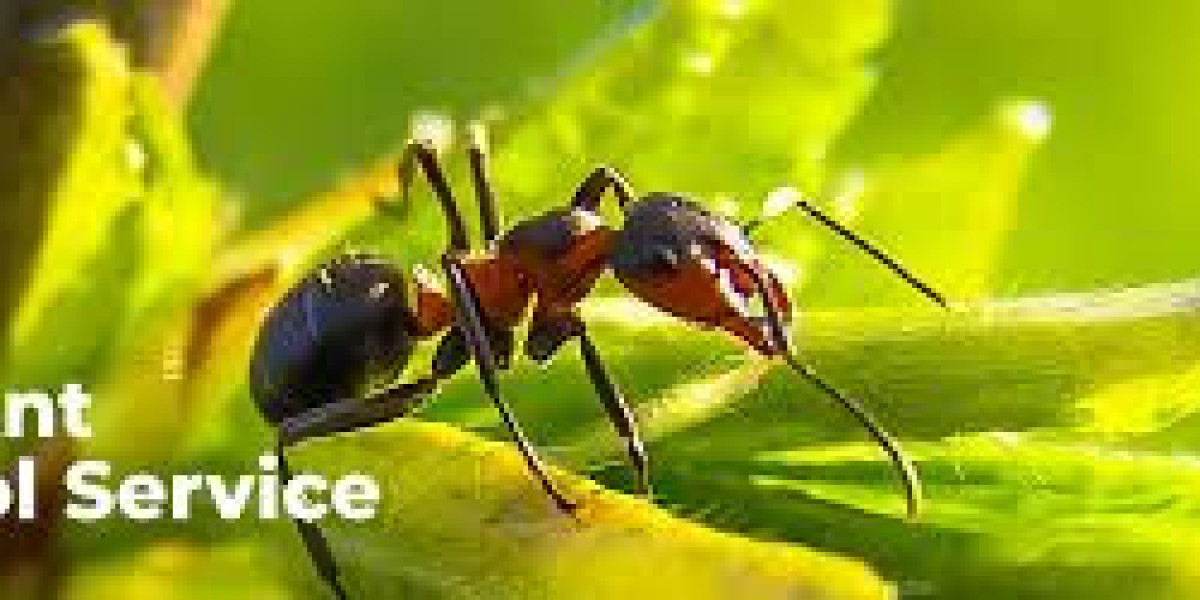Ants may be tiny, but when they invade your home, they can become a big nuisance. Whether it's a trail marching through your kitchen or ants making a home in your backyard, dealing with them can be frustrating. The good news? You can take control of the situation and prevent them from returning. This guide will help you understand why ants invade your space and provide easy-to-follow tips to get rid of them for good.
Why Do Ants Come Into Your Home?
Before jumping into solutions, it's essential to understand why ants are attracted to your home in the first place.
- Food Sources: Ants are always searching for food. Crumbs, spills, and even pet food left out in the open can attract them.
- Water Availability: Ants need water to survive, so areas like kitchens, bathrooms, and basements are hotspots.
- Shelter: Ants look for safe places to build their nests. Cracks in walls, potted plants, and even the soil around your house can provide them with shelter.
Common Types of Ants You May Encounter
There are many types of ants, but some are more likely to invade your home than others. Here are the most common ones:
- Carpenter Ants: These ants can cause structural damage as they burrow into wood to build their nests.
- Sugar Ants: Attracted to sweets, these ants are small but persistent.
- Fire Ants: Known for their painful sting, fire ants usually build nests in yards but can occasionally venture indoors.
- Odorous House Ants: These ants release a foul smell when crushed and are often found near water sources.
Signs of an Ant Infestation
Wondering if you have an ant problem? Look for these signs:
- Visible Trails: Ants often leave a trail from their nest to a food source.
- Nest Locations: Piles of dirt, wood shavings, or small mounds can indicate a nest.
- Frequent Sightings: Seeing ants repeatedly, even after cleaning, suggests a colony is nearby.
How to Prevent Ants from Entering Your Home
Prevention is always better than dealing with an infestation. Here’s how you can make your home less inviting to ants:
1. Keep Your Home Clean
- Wipe down countertops and sweep floors regularly.
- Store food in airtight containers.
- Take out the trash daily and clean the bin to remove lingering odors.
2. Seal Entry Points
- Use caulk to seal cracks and gaps in walls, windows, and doors.
- Install weather stripping on doors and windows to eliminate entry points.
3. Eliminate Moisture
- Fix leaky pipes and faucets.
- Use a dehumidifier in damp areas like basements.
Natural Remedies to Get Rid of Ants
If you prefer not to use chemicals, several natural methods can help you control ants:
1. Vinegar Solution
Mix equal parts vinegar and water in a spray bottle. Spray the mixture along ant trails and entry points. The smell disrupts their scent trails and deters them from returning.
2. Lemon Juice
Squeeze lemon juice in areas where ants are active. The acidic scent confuses their sense of direction.
3. Cinnamon
Sprinkle cinnamon near entry points and ant trails. The strong smell acts as a natural repellent.
4. Diatomaceous Earth
This powder is made from fossilized algae and is safe for humans but lethal for ants. Sprinkle it in areas where ants are seen.
Chemical Solutions for Stubborn Infestations
Sometimes, natural remedies may not be enough, especially for larger infestations. In such cases, chemical solutions can help:
1. Ant Baits
Ant baits are highly effective as they lure ants to take poisoned food back to their colony, eliminating the nest over time.
2. Spray Pesticides
Use ant sprays to target specific areas. Ensure you follow the safety instructions and keep the spray away from children and pets.
3. Professional Pest Control
If the infestation is severe, hiring a pest control service may be your best option. They have the tools and expertise to deal with large colonies.
Outdoor Ant Control
Ants often start their colonies outdoors before venturing inside. To control ants around your yard:
- Keep the Yard Clean: Remove fallen fruit, rotting wood, and other debris that can attract ants.
- Create Barriers: Use gravel or mulch around your home’s foundation to discourage ants from nesting close to the structure.
- Apply Outdoor Treatments: Use outdoor ant baits or insecticides to target colonies.
The Importance of Patience and Persistence
Controlling ants isn’t always an overnight process. You may need to try a combination of methods and give them time to work. Regular maintenance and prevention efforts are key to keeping ants at bay in the long run.
When to Call the Professionals
If you've tried multiple solutions but the problem persists, it might be time to call in a professional pest control service. They can identify the type of ant and use specialized treatments to eliminate the colony effectively.
Final Thoughts
Dealing with ants can be challenging, but it’s not impossible. By understanding why they invade, taking preventive measures, and using the right control methods, you can reclaim your home from these tiny invaders. For those wondering about the best ant control, the answer often lies in a combination of natural remedies, chemical solutions, and consistent prevention efforts.
With a little patience and effort, you can keep your home ant-free and enjoy a pest-free living space.



